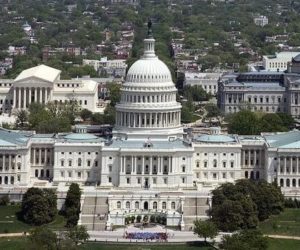The rebel Houthi forces, also called Ansar Allah, have withdrawn from Hudaydah harbor, which is the main gateway for commerce with Yemen and vital humanitarian supplies for its devastated people.
The UN Special Envoy Martin Griffiths reported today that the redeployment of forces took place between 11 and 14 May. General Michael Lollesgaard who heads the UN mission on the spot has “confirmed that Ansar Allah was fully compliant throughout the withdrawal and that they were very cooperative”.
The military forces of Ansar Allah have now left the three ports of Al-Hudaydah, Saleef and Ras Issa. This is significant because the UN should now get a leading role in verifying whatever moves through the ports (to prevent arms smuggling) while helping to repair facilities and improve the ports’ productivity. That would vastly increase import of supplies for Yemen’s people and also help them to earn from exports.
Griffiths told the UN Security Council that withdrawal from Hudaydah was a significant step, but he also underlined the fragility of the good news. “Yemen remains very much at the crossroads between war and peace… There are also alarming signs, in recent days, there are alarming signs of the war… The ease with which progress can be reduced or removed is indeed frightening,” he said.
The Hudaydah area has long been under Houthi control. The withdrawal from only the ports is a limited action but the new UN role is very important because the ports are a lifeline for millions of Yemenis, as the main entry points for food imports and aid.
The withdrawal is a first phase in a longer and complex peace plan outlined in a fragile agreement among the warring parties in Sweden in December 2018. The brutal war in Yemen since 2014 is between the Houthi rebels and a military coalition led by Saudi Arabia and the United Arab Emirates (UAE).
Under the plan’s first phase, the Saudi coalition forces massed on Hudaydah’s outskirts are also supposed to withdraw, but Saudi Arabia and UAE have not yet commented after the Houthi withdrawal.
Even as Griffiths spoke to the Security Council, a Houthi military spokesman said seven drones carried out attacks on oil installations inside Saudi Arabia on Tuesday. By Wednesday, Houthi fighters and Saudi-backed forces were clashing again in the city of Hudaydah, violating a ceasefire.
The UN describes the devastation in Yemen caused by aerial attacks and ground fighting “the world’s worst humanitarian crisis”. Over 3.3 million people have been displaced within the country and 24.1 million need aid. More than two-thirds of the population is suffering from hunger, lack of medical care and an upsurge of diseases, including cholera.
The big question now is whether President Donald Trump’s relentless throttling of Iran’s economy will force Tehran to weaken the Houthis by ending support for them. For the moment, that appears unlikely since the Houthis have nowhere to go and are fighting for their lives. A Saudi military victory could mean draconian punishments for them.
For Iran, keeping the Houthis going is a low cost way of tying Saudi Arabia and UAE down in a quagmire that is turning into a quicksand for their ruling families. The war is on the way to becoming endless unless Trump decides to commit US airpower to help the Saudis, causing yet more devastation for Yemen’s people.
Even that may not help much, in light of the very inconclusive results of the use of American airpower in Afghanistan and Syria.
Brij Khindaria
















